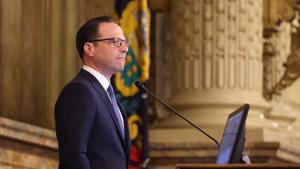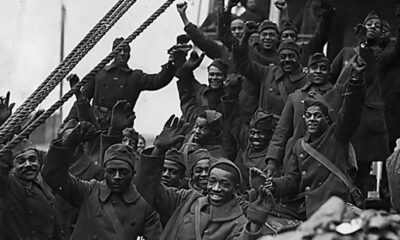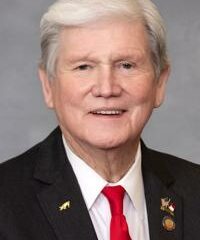(The Center Square) – American universities have long been captured by systems of thought that are “anti-family, anti-religious, anti-capitalist” and even “anti-truth,” according to Trump-appointed education department official Jonathan Pidluzny.
But Pidluzny and others say there’s a pathway to reversing that trend.
At a panel discussion hosted by conservative think tank The Heritage Foundation, four Christian college presidents weighed in on how they think universities can “reclaim the culture of American higher education.”
Wyoming Catholic College President Kyle Washut said that widespread resets have happened before, referring to the late 1800s and early 1900s as a time of a “radical remaking” of American higher education. Gilded Age magnates, among others, founded many new colleges that have gained a reputation as some of the best in the country, like Stanford and Vanderbilt universities.
“Generous benefactors came in and started a new wave of institutions. The University of Chicago emerges out of this. A number of these schools come out as a response to saying the old model didn’t work; we’re gonna build new colleges,” Washut said.
These schools marked a departure from their predecessors in that they were private, secular, research-focused universities aiming to prepare students for a career in an industrialized economy.
“As a result of the building of the new colleges, it actually transformed the existing legacy institutions,” Washut said. “So at least in part, it seems to me, the American approach to helping reform higher education begins with creating compelling small institutions to put pressure on the other ones.”
While Washut may not agree with the “utterly pragmatic view of education” that drove much of the change at the time, he thinks history proves that the culture of American higher education can be reclaimed.
Wyoming Catholic College was founded only 20 years ago. The four-year university sits at an elevation of over 5,000 feet in a rural mountain town of less than 8,000 people with only 179 students and a unique curriculum and culture.
It embraces the liberal arts, as all four colleges do that were a part of the panel, but it offers no majors or minors. Just a Bachelor of Arts in Liberal Arts, to develop well-rounded students steeped in the Great Books and the outdoors. Freshmen kick off their college experience with a three-week backpacking trip to develop grit and physical strength. All students commit to another seven weeks of outdoor formation and one semester of horsemanship.
The college does this in part because it considers Plato’s Republic one of its “foundational texts,” according to Washut, and in the work, Plato advocates for soundness of both mind and body.
“Socrates asks the question, ‘What do we need to do to educate the guardians,’ the people who are going to preserve and defend the republic, the city, the values of the culture we have?” said Washut.
The Republic includes among the precursors to rigorous intellectual development distancing oneself from distractions and physical fitness. That’s why students don’t have access to the internet in their dorms and why they “fast” from their cell phones at WCC.
“[This] allows for the focus on intense reading, intense reflection, intense community formation where they’re doing the kind of education and the liberal arts that we think is necessary for leading,” Washut said.
In addition to a compelling model of education and student life, schools need a compelling financial model if they want to attract more students and gain broader influence.
Grand Canyon University, the largest Christian college in the U.S., hasn’t raised tuition for over 15 years, which its president says is largely because the school’s leadership has been creative in its delivery of education.
“What we thought was, if we would understand the needs of students across the life spectrum, and we were very creative in how we would deliver according to who the student was and what was the nature of what they needed to learn, we could build growing student bodies across the age spectrum leveraging a common infrastructure and we could make it affordable,” said GCU President Brian Mueller.
The school has a traditional campus for younger students, as well as robust online programming. It also has smaller campuses across the country for degrees that can’t be delivered entirely online and a trades program.
The university’s affordability is a central part of its growth and has attracted a diverse student population, according to Mueller. Despite a lack of affirmative action and diversity, equity and inclusion programs (though they do have an Equity Office) the student body is 23% hispanic and 15% African American, with over 40% being students of color, according to the most recent statistics from U.S. News & World Report.
“It’s not a government mandate through DEI that’ll fix the problem” of attracting minority populations or balancing the male-female ratio, Mueller said. “It’s smart business models that make things affordable, and all of a sudden, you have what the world wants to see – an inclusion of everybody.”
GCU does take government funding, while Virginia’s Christendom College and WCC do not.
At the College of the Ozarks, the fourth school on the panel, students are required to work 15 hours per week during the school year and two 40-hour work weeks during breaks. Combined with several other factors, this enables students to graduate debt-free.
“We have to figure out a way to scale it and make it affordable, and if that happens, what’s going to happen in the next ten years is really going to shock people,” Mueller said.









































